Is it HIV or is it age?
Many of the health changes that occur with aging can be similar to the symptoms of HIV or the side effects of HIV drugs. There are several health conditions associated with both aging and HIV.
Changes to the immune system
As you age, your immune system becomes less effective at protecting your body from infection and disease. This is why untreated HIV progresses more quickly in people who are older, and is one more reason why early diagnosis of HIV is especially important.
Over time, HIV damages the immune system, but much of this damage can be reversed when people are on effective HIV treatment. However, some HIV-induced injury persists: for instance, the immune system can lose its ability to “remember” its exposure to other germs. Complicating this situation further, the immune system grows weaker with age. This does not mean that older people who are taking HIV treatment and who have improved CD4 cell counts (an indicator of a healthy immune system) will get AIDS, but it does mean that preventing illness and infection is particularly important. Speak to your healthcare provider about the annual flu shot and vaccinations against shingles and pneumonia. Depending on your medical history, your healthcare provider may also recommend other vaccines.
Kidney disease
In the general population, kidney function starts to slowly decline after the age of 30 to 40 years. As a result, the risk for kidney disease increases as people get older. However, because HIV infection causes general inflammation in the body, people with HIV of all ages are also at higher risk for kidney disease. This is true whether or not they are on effective treatment.
When untreated HIV infection is the cause of kidney problems, HIV treatment might help. However, some antiretroviral drugs can cause kidney injury, such as tenofovir disoproxil fumarate (TDF). TDF is a drug sold as Viread and is also found in Atripla, Complera, Delstrigo, Stribild and Truvada. If you are on a TDF-based regimen, your healthcare provider should be monitoring your kidney function as part of your routine blood tests.
A newer version of tenofovir called TAF (tenofovir alafenamide) is safer for the kidneys than TDF. TAF is found in Biktarvy, Descovy, Genvoya, Odefsey and Symtuza. If you are experiencing kidney-related side effects when taking TDF, your healthcare provider may switch you to a TAF-based regimen.

Cardiovascular (heart and blood vessel) disease
Cardiovascular disease is a broad term that includes coronary artery disease, heart attack and stroke. It is often referred to as heart disease. Everyone’s risk of developing heart disease increases as they age, whether or not they have HIV. If a first-degree relative in your family—your father, mother, sibling, or child —has developed heart disease at a younger age, your risk of developing heart disease will be higher than that of a person who doesn’t have a family history. Cis women older than 55 years and cis men older than 45 years are at higher risk of developing heart disease than younger people. Research on cardiovascular health in trans people is limited and results are mixed. Some evidence suggests that gender-affirming hormone therapy has long-term cardiovascular effects, whereas other studies have not found these same effects. Further, the differences between risk related to estrogen-based and testosterone-based hormone therapies are unclear.
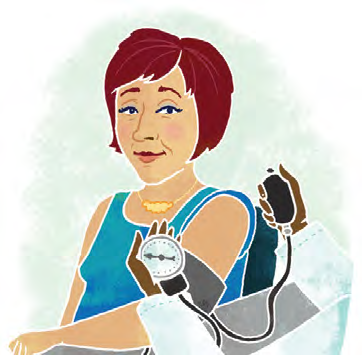
People with HIV are at a significantly higher risk of developing heart disease, and at an earlier age, than people without HIV. The relationship between HIV and heart problems is still not fully understood. In some cases, HIV itself may cause heart problems. When HIV is present for a long time, especially when untreated, it causes inflammation in the blood vessels. This can be a risk factor for heart disease and other conditions. Some HIV drugs, especially older ones like protease inhibitors, can increase the risk of heart problems by raising the level of cholesterol and triglycerides in the blood. Even if some HIV drugs increase people’s risk of heart problems, it is clear that the benefits of HIV treatment far outweigh the risks. This is because HIV treatment reduces the amount of HIV in your body which, in turn, reduces inflammation.
You can lower your risk for heart problems by:
- eating plenty of fruits, vegetables, whole grains and lean protein
- exercising regularly—both cardio and weight-bearing exercises
- quitting or cutting down on smoking or vaping
- limiting your alcohol intake
- quitting or cutting down on drugs, such as cocaine, crack, crystal meth, ecstasy or MDMA, ketamine and GHB
- seeing your healthcare provider regularly to monitor your heart health
These healthy habits can also influence your risk for other conditions associated with heart disease, such as high cholesterol or blood lipid (‘fats’) levels, prediabetes, diabetes, and high blood pressure (hypertension).
Early menopause
For most people with ovaries, menopause occurs between the ages of 45 and 55 years. During this time, the production of the hormones estrogen and progesterone declines, eventually causing menstruation (periods) to stop completely.
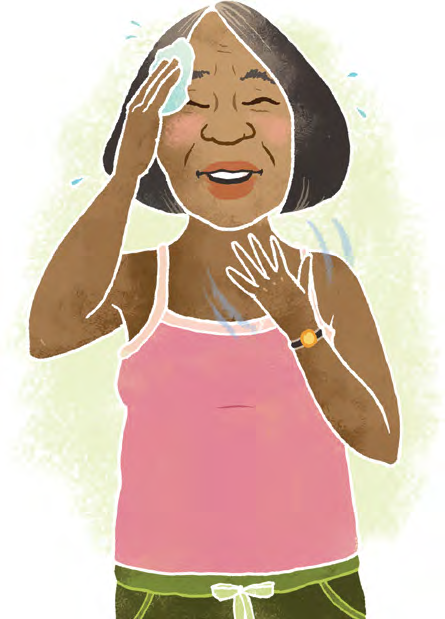
Although the impact of HIV on menopause is not fully understood, menopause does appear to occur earlier in individuals with HIV. However, for individuals on effective HIV treatment, the age at which menopause starts varies and is likely to be very similar to that in individuals without HIV. Trans men who take testosterone starting at a pre-menopausal age, and maintain that intake, will not experience menopausal symptoms.
Menopause brings with it an increased risk of many health issues, such as osteoporosis and heart disease.
Many of the symptoms of menopause and HIV overlap. These include:
- hot flashes
- night sweats
- skin and hair changes
- trouble sleeping
- forgetfulness
- fatigue
- emotional changes, such as mild depression
The fact that menopause and HIV have these symptoms in common can make it difficult to know what is causing the symptoms. As a result, an HIV diagnosis might be delayed, or it might be missed entirely. Talk to your healthcare provider if you have concerns about menopause symptoms.
Bone disorders
Your bones are living and growing. The strength of your bones, or bone density, is determined in part by the amount of calcium, magnesium, phosphorus and other minerals they contain.
When you have HIV, your risk of some bone disorders increases, whether or not you are on treatment. This includes an increased risk of early-stage bone loss or osteopenia and fracture.
Chronic inflammation due to HIV is a risk factor for bone loss. Age and sex are also risk factors for bone problems. Cis women have a higher risk than cis men of osteoporosis, a bone disease that causes bones to become thinner and more fragile and at higher risk of breaking, particularly at the hip, spine and wrist. This is partly because cis women have an average of 30 percent less bone mass than cis men. Cis women are particularly vulnerable to osteoporosis after menopause, when the hormone estrogen—a key factor in maintaining bone strength—is no longer produced in as large amounts by the ovaries.
Research on bone density in trans people is limited. Trans men who don’t take testosterone do not show significant differences from cis women’s bone density, and may show some minor increase in density with testosterone, but research findings are inconsistent. Risk for bone fractures seems to be similar between older cis and trans women, as well as trans men. Trans men taking testosterone therapy typically have normal bone density and are not at increased risk of fractures. On the other hand, HIV appears to cause more bone loss in cis men than in cis women (we don’t currently have figures on this for trans people).
This means that, regardless of your sex assigned at birth, it’s important to pay attention to your bone health.
Other risk factors for bone density loss in all people include smoking cigarettes, a lack of weight-bearing exercise, and a family history of osteoporosis.
Preventing bone loss is the best strategy for maintaining strong bones. You can help prevent bone loss by:
- eating plenty of fruits, vegetables, whole grains and protein, and increasing your intake of calcium-rich foods, as well as taking vitamin D3 supplements. This will help you get most nutrients needed to keep your bones healthy and functioning well
- doing weight-bearing exercises, such as walking, running, hiking or weight lifting
- limiting or eliminating your intake of caffeine, cigarettes and alcohol
If you are diagnosed with osteopenia or osteoporosis, speak to your healthcare provider about options for maintaining or increasing your bone density.
Falls and frailty
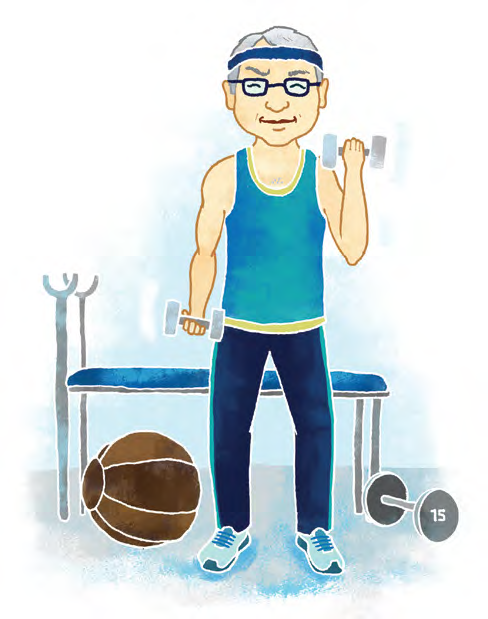
Everyone’s risk for falling increases with age, regardless of their HIV status. Falls increase the chance of breaking bones. There may be different reasons for falls, like rainy or winter weather.
During these times, you should take more care when walking and check your footwear to see if the treads are worn.
Older people with HIV may be more likely than their HIV-negative peers to face certain medical issues that increase their risk of falling. In some cases, falls can suggest a range of issues including ear infections, balance problems, vision problems and difficulty coordinating muscles and movement. This is why it is important to discuss fall prevention with your healthcare provider.
As people age, they generally become weaker and more frail. Signs of frailty can include:
- weaker muscles (for example, finding it more difficult to lift and carry items)
- walking more slowly
- unintentional weight loss
- feeling tired a lot
Common health problems like cardiovascular disease and diabetes can contribute to frailty. However, frailty can sometimes be reversed if the cause or causes are found and the right interventions are taken.
Physical activity and balance training can be especially useful. Talk to your healthcare provider if you find that you have some of the signs of frailty described above.
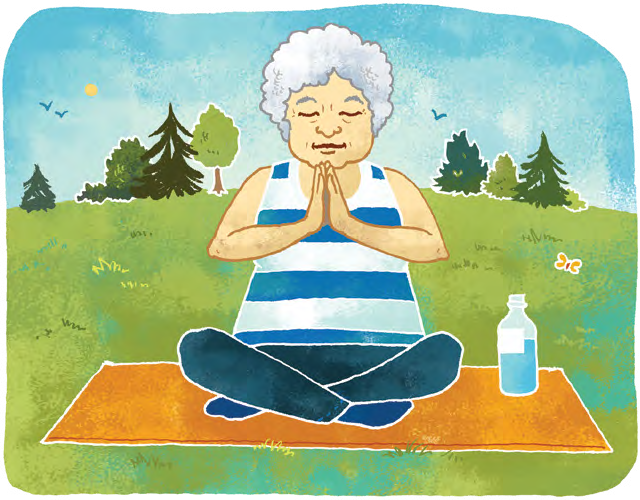
Cancers
Before combination HIV treatment was introduced, the most common cancers in people with HIV included Kaposi’s sarcoma, non-Hodgkin’s lymphoma and cervical cancer. These were called ‘AIDS-defining cancers.’ Now, thanks to effective HIV medication, if you have HIV and are taking treatment as prescribed, you are much less likely to get these cancers.
On the other hand, the overall risk of developing a wide range of cancers increases with age. For example, all people older than 50 years are at an increased risk of developing colon and rectal (colorectal) cancer. Age-related cancers are now more common than AIDS-defining cancers among people on HIV treatment.
Some cancers are seen more often, and at an earlier age, in people with HIV. These include:
- lung cancer
- skin cancer
- anal cancer
- stomach cancer
- liver cancer (this happens more often among people who also have hepatitis C)
- oral (mouth or throat) cancer
- Hodgkin’s lymphoma
The rates of breast, colon and prostate cancers in people living with HIV are similar to that of people without HIV.
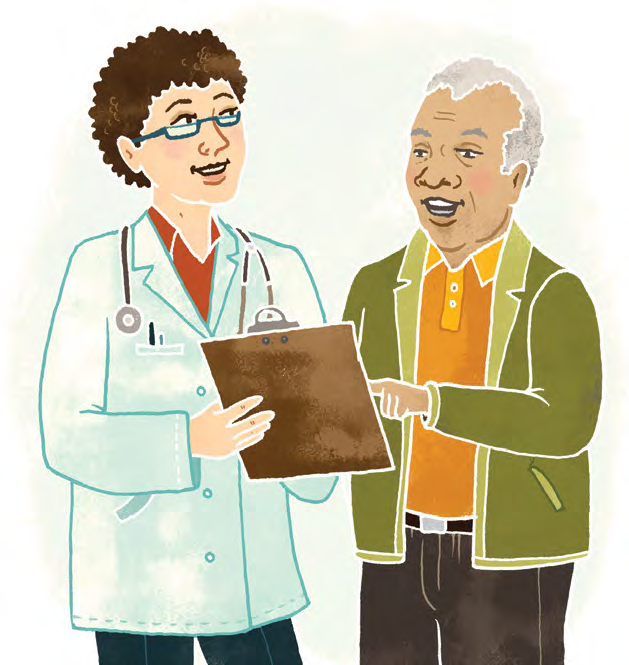
People living with HIV who have cancer may face more severe outcomes than people without HIV who have the same type of cancer.
There are screening tests available for some cancers (for more on these, see Screening tests). For early detection, which may improve your chance of survival, it’s important to take screening tests as recommended by your healthcare provider. To help prevent cancer, talk to your healthcare provider about changes you may want to make in your lifestyle.
Diabetes
Insulin is a hormone produced by the pancreas to control the amount of sugar or glucose in the blood. Diabetes occurs when your pancreas cannot make enough insulin or when your body doesn’t respond to insulin as well as it should.
Risk factors for diabetes include:
- being older than 40 to 45 years
- being overweight
- a sedentary lifestyle (little or no exercise)
- a family history of diabetes
- Indigenous, African, Latin American or Asian ancestry
- high blood pressure (hypertension)
- high levels of cholesterol or triglycerides in the blood
- co-infection with hepatitis C
- smoking or vaping
Some older HIV drugs are linked to an increased risk of diabetes. Fortunately, there are many newer drugs that don’t have this risk.
However, HIV itself can increase the risk of developing diabetes, mostly among people who have had HIV for a very long time, aren’t on treatment and have a high viral load and low CD4 count.
There are several ways to manage your blood sugar levels:
- Limit the amount of sugar and starchy foods you eat, such as desserts, soft drinks, white rice or potatoes.
- Choose whole grains and unprocessed foods that contain fibre, such as barley, brown rice and oats as healthy grain choices.
- Eat a balanced diet, including healthy protein sources such as lean meats, fish high in omega-3, beans and lentils.
- Eat smaller portions.
- Incorporate physical activity into your daily routine.
Sexual health
If you have HIV, you can still have a healthy and satisfying sexual life as you get older. It can be reassuring to know that HIV cannot be transmitted sexually when you are on effective treatment (this is called ‘undetectable equals untransmittable’ or U=U). Being on effective treatment means attaining and maintaining an undetectable viral load. An undetectable viral load means that the level of HIV in the blood is so low that it does not show up in a viral load test.
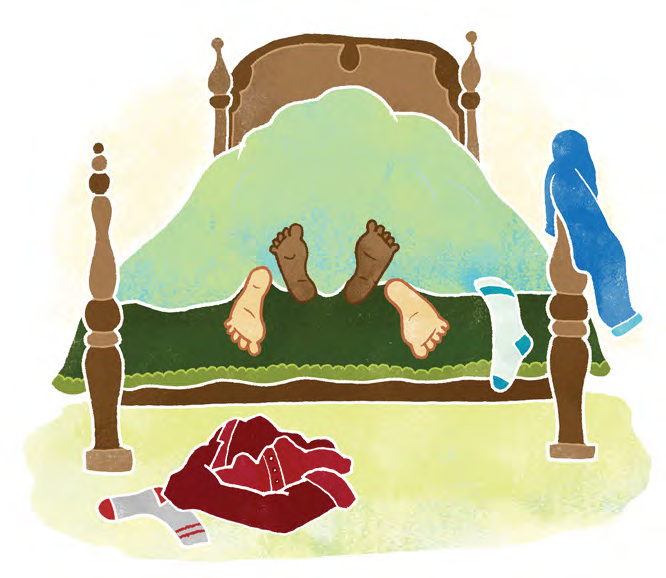
Sexual concerns such as low libido (sex drive) and erectile dysfunction can happen to anyone, especially as we grow older.
Some possible causes are:
- HIV itself
- drug side effects
- hormone levels (including low testosterone)
- cardiovascular disease (this includes problems with the heart, arteries and veins)
- diabetes
- stress and depression
Sexual concerns can be a sensitive topic, but it is important to talk to your healthcare provider about any sexual concerns you have because, in many cases, there are effective ways to manage them. You deserve a satisfying and happy sex life!
